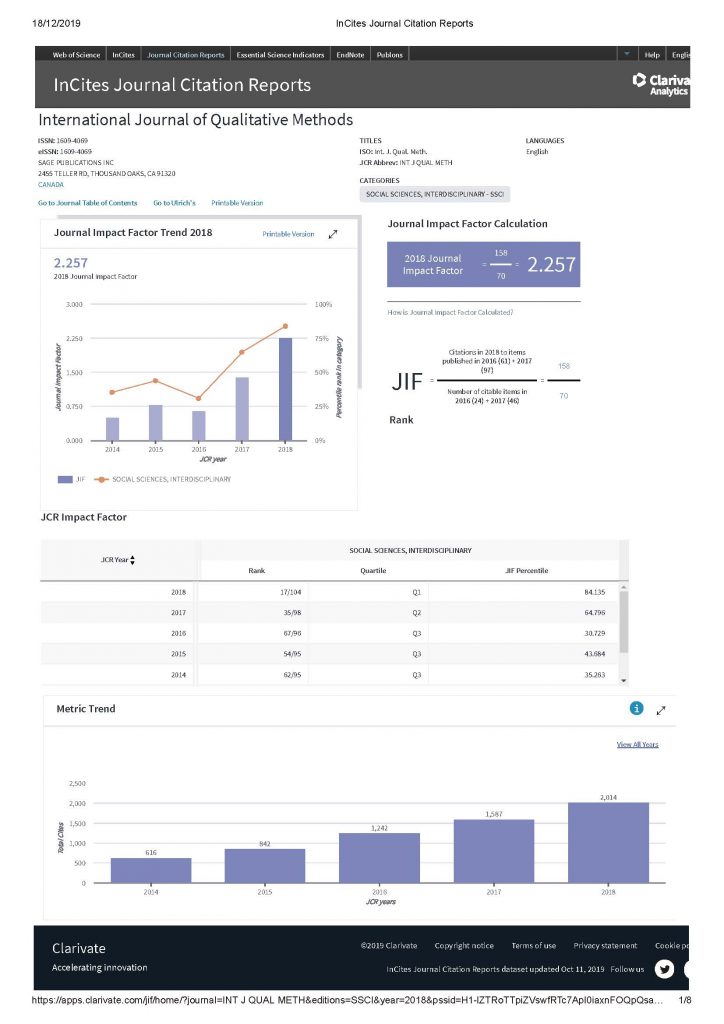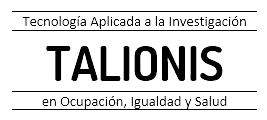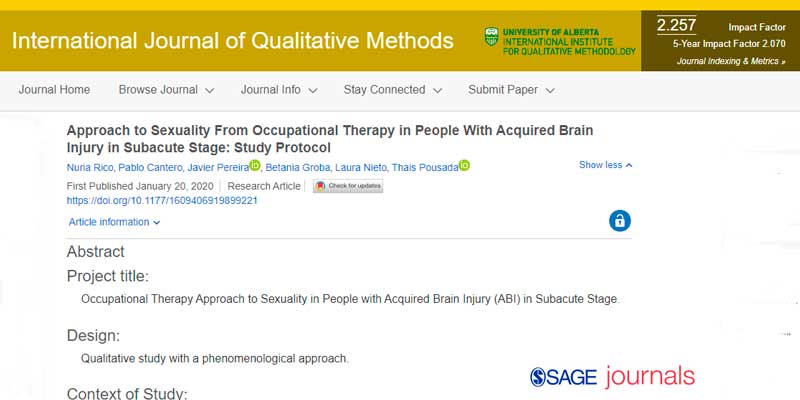Abstract
Project title: Occupational Therapy Approach to Sexuality in People with Acquired Brain Injury (ABI) in Subacute Stage.
Design: Qualitative study with a phenomenological approach. Context of Study: The relevance of the occupational therapy approach to sexuality regarding people with acquired brain injury in the subacute stage.
Objectives:
- General objective: Explore the perceptions of people with ABI, who are in a subacute situation, and their relatives and partners, about their assessment of the relevance of the approach toward sexuality during their occupational therapy intervention.
- Specific objectives: Describe and analyze the perspectives of users, family members, and partners about the importance of this activity and its relevance in daily life; what is included in the approach to sexuality; the differences that may arise between the perspectives of the participants according to gender; and the differences that may arise between the perspectives on the subject by age groups.
Study Population and the Total Number of Participants: The study population is made up of people with ABI in the subacute stage who attend occupational therapy at the physical rehabilitation unit of a hospital in Spain, and their families and partners. The size of the sample is conditioned by the qualitative study’s design. The number of participants will be established when theoretical saturation of the data is reached. First results are now available.
Keywords
occupational therapy, sexuality, acquired brain damage, subacute stage, qualitative study
Acceso al artículo
Rico, N., Cantero, P., Pereira, J., Groba, B., Nieto, L., & Pousada, T. (2020). Approach to Sexuality From Occupational Therapy in People With Acquired Brain Injury in Subacute Stage: Study Protocol. International Journal of Qualitative Methods. https://doi.org/10.1177/1609406919899221
Journal Citation Reports (Web of Science Group, 2019). Clarivate Analytics
- ÍNDICE DE IMPACTO= 2.257 (2018).
- Categoría: SOCIAL SCIENCES, INTERDISCIPLINARY.
- Puesto 17 DE 104.
- Cuartil Q1


